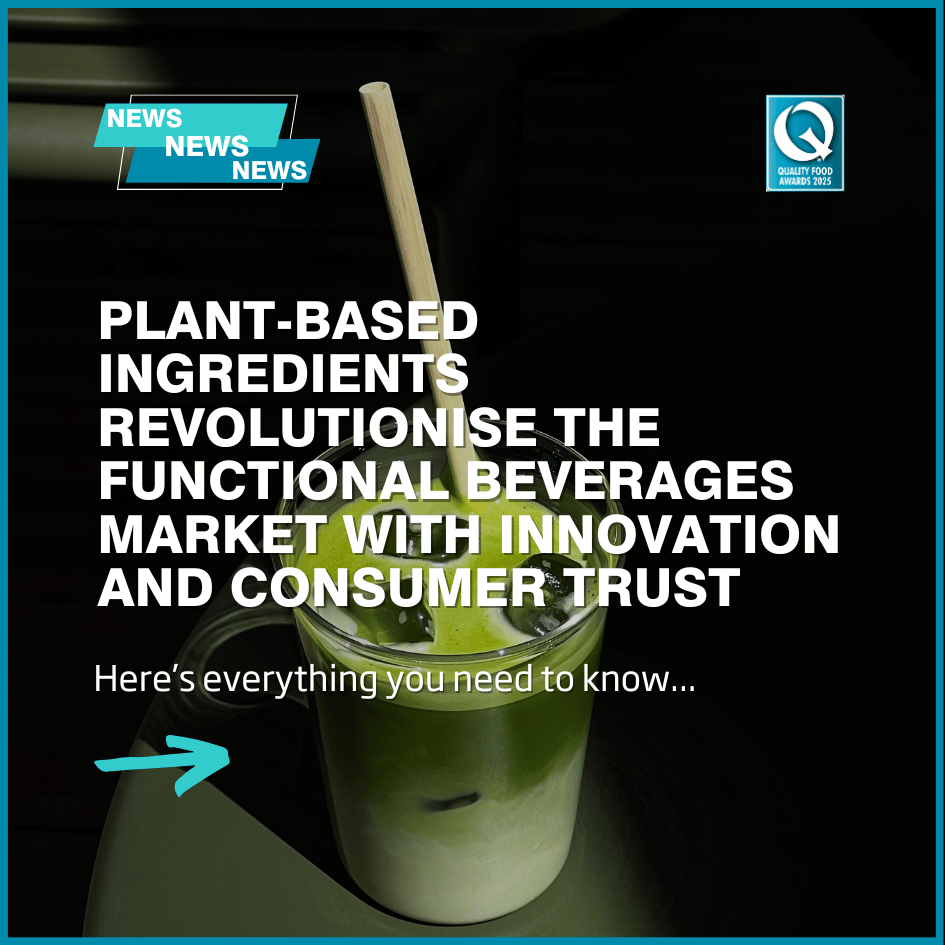
Plant-based ingredients revolutionise the functional beverages market with innovation and consumer trust
The global functional beverages sector is experiencing rapid growth driven by natural, plant-based ingredients that meet rising consumer demands for health, sustainability, and transparency, set to reach $248.51 billion by 2030.
The global functional beverages market is undergoing a notable transformation, with plant-based ingredients driving a significant surge in both innovation and consumer demand. Once relegated to synthetic sources such as caffeine or taurine for affordability and volume, functional components in beverages are now predominantly derived from natural plants, heralding a new era where health, sustainability, and transparency are central to consumer choice. According to data from Grand View Research, this market is poised to expand from $149.75 billion in 2024 to an impressive $248.51 billion by 2030, growing at a robust compound annual growth rate (CAGR) of 8.9% between 2025 and 2030.
This growth stems from an evolving consumer mindset that prioritises products supporting personal health alongside broader values including clean labels, sustainability, and plant-based nutrition. Swapnil Bodhe of Grand View Research highlights that plant-based innovations have moved beyond niche wellness niches to influence mainstream outlets such as convenience stores, cafés, and e-commerce platforms. Modern consumers increasingly scan product labels with intent, favouring ingredients they trust and that are linked to authentic health benefits. Ingredients like adaptogens, probiotics, and plant proteins promise advantages such as digestive health, mental clarity, immunity support, and energy—without reliance on artificial additives or animal-derived components.
Concurrently, dietary trends featuring vegan and flexitarian preferences have heightened the appeal of plant-based functional beverages. Many consumers, whether due to lactose intolerance or ethical choices, seek dairy-free options, while others are drawn to natural ingredients rooted in traditional and ancient remedies. Sustainability remains a powerful driver as well, with many consumers conscious about planetary health and expecting responsibly sourced products. This aligns with a broader movement away from ultra-processed foods and artificial additives, positioning natural, plant-derived ingredients as safer and more desirable.
Regionally, North America holds a dominant share of over 37% in the functional beverages market as of 2024, driven by high health awareness and competitive innovation. Meanwhile, Asia Pacific is rapidly emerging as a growth powerhouse, propelled by rising incomes, heightened health consciousness, and a deep cultural heritage in herbal remedies.
Several key trends exemplify the dynamic shifts within this sector. Botanical and herbal infusions, featuring ingredients like hibiscus, turmeric, ginger, chamomile, and lavender, are gaining favour for their antioxidant and calming properties, blending taste with wellness. Brands like Sunwink and Aura Bora exemplify this movement, delivering sparkling tonics and herbal waters that target mood enhancement and immune support.
Another notable trend is the burgeoning interest in adaptogens and functional mushrooms, as global stress becomes a prevalent concern. Plant-based nootropics such as ashwagandha, reishi, and lion’s mane are increasingly incorporated into beverages from sparkling waters to coffee alternatives. Particularly among younger demographics such as Gen Z, there is a discernible shift from traditional stimulants like coffee and alcohol towards mushroom-infused shots, teas, and tonics designed for mental clarity and gentle energy, reflecting a quest for balance and wellbeing.
Gut health is also a prime focus, with prebiotic sodas and gut-friendly drinks developing a strong foothold. Brands such as Olipop, Poppi, and Culture Pop have pioneered “new-age” sodas formulated with prebiotic fibres like inulin or fruit fibres, offering tasty alternatives to sugary soft drinks and gaining shelf space in major supermarkets including Walmart. This trend meets demand from consumers keen on digestive health without compromising flavour.
Plant-based protein beverages are another pillar of this growth. With increasing demand for convenient, nutrient-rich options, drinks enriched with pea, pumpkin seed, or rice proteins attract fitness enthusiasts and those mindful of weight management. These formulations also reflect the so-called “Ozempic effect,” where consumers seek high-protein, low-sugar products that promote satiety and metabolic health, integrating clean, nutrient-dense ingredients with wellness goals.
Energy beverages are evolving in tandem, moving away from synthetic caffeine toward plant-based sources like yerba mate, green tea, matcha, and guayusa that provide a gentler lift while delivering antioxidants and other health benefits. This shift not only appeals to health-conscious consumers but also addresses environmental concerns by reducing the ecological footprint often associated with synthetic alternatives.
For industry leaders, these trends underscore the necessity to align brand strategies with evolving consumer expectations around transparency, authenticity, and sustainability. Investments in recyclable packaging, ethical sourcing, and full supply chain transparency are increasingly viewed as competitive imperatives. According to Bodhe, brands that can deliver credible health benefits while demonstrating strong environmental and social responsibility are positioned to build enduring customer loyalty and secure market advantage.
Advising the sector, experts encourage research and development teams to prioritise clean-label formulations featuring innovative botanicals and emerging plant-based ingredients. Marketers are urged to communicate health benefits transparently without overpromising, engaging consumers through authentic storytelling. Meanwhile, retailers should consider dedicated shelf space and in-store signage to cater to the growing visibility and demand for plant-based functional beverages. Investors and strategists are advised to monitor emerging brands and product formats focused on gut health, mental wellness, and sustainability, areas ripe for breakthrough growth.
As the functional beverage market continues to expand, plant-based innovations remain at its core. From gut-friendly sodas and stress-relief elixirs to protein-enriched shakes, the landscape offers vast potential for innovation. According to the latest industry analyses, today’s consumers evaluate beverages not only on taste but also on their perceived health benefits and ethical provenance. Companies that can authentically address these expectations with transparency and purpose are likely to lead the sector in the years ahead. The future of functional beverages, driven by plants and wellness, promises to be vibrant, dynamic, and increasingly integrated with a broader commitment to health and sustainability.
